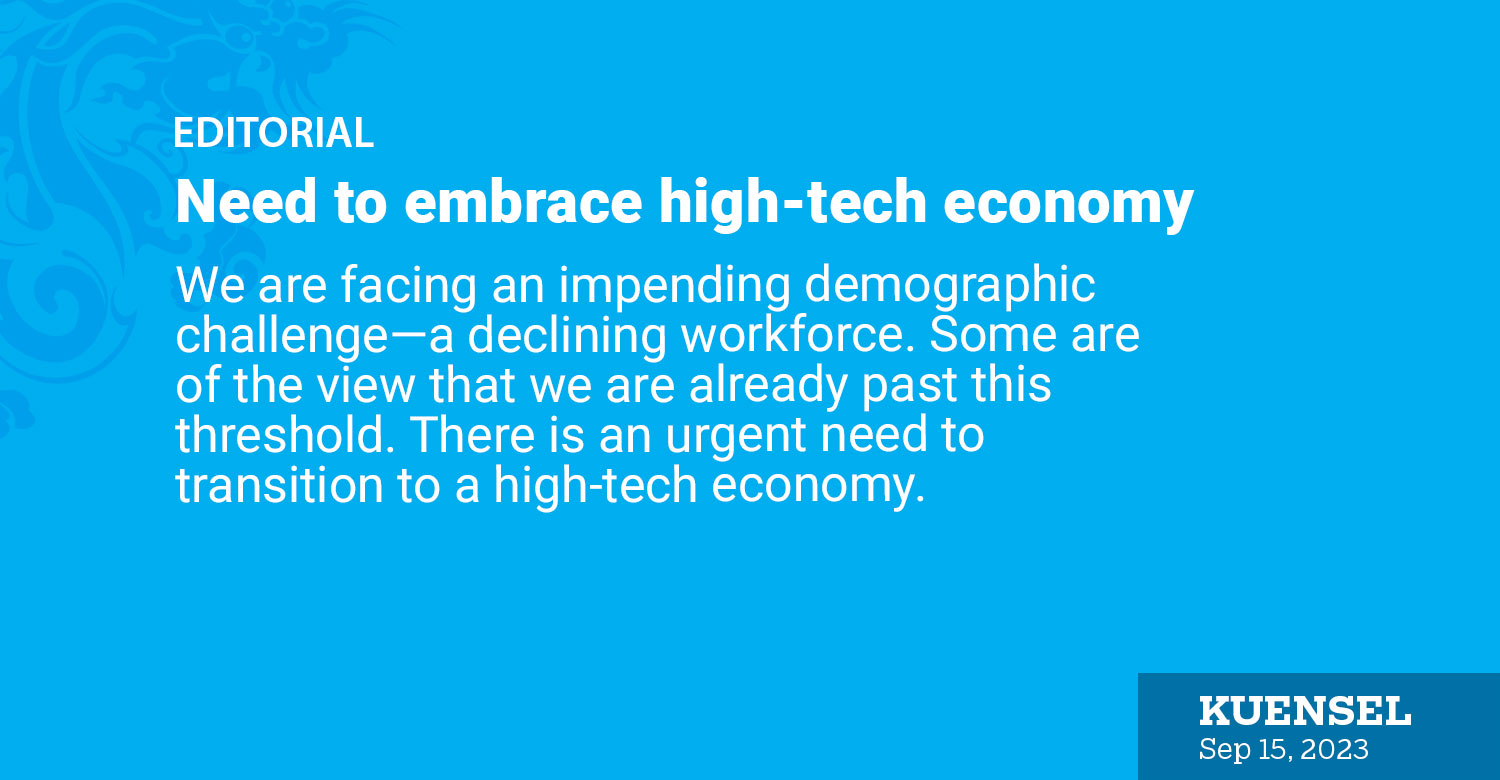We are facing an impending demographic challenge—a declining workforce. Some are of the view that we are already past this threshold. There is an urgent need to transition to a high-tech economy.
Bhutan’s demographic structure is undergoing a significant shift. An aging population, coupled with emigration and a low birth rate, is resulting in a shrinking workforce. This trend poses a severe threat to the country’s economic stability and social well-being.
To respond effectively to this reality, we must pivot towards industries that require fewer physical labourers but can harness the intellect of our people effectively.
Our economy is heavily reliant on hydropower and agriculture. Transitioning to a high-tech economy will diversify our economic base, making it less vulnerable to external shocks.
High-tech industries are known for their ability to enhance productivity. Automation, artificial intelligence, and digitalisation can optimise processes, making Bhutanese companies more competitive on a global scale.
Contrary to the notion that high-tech industries lead to job losses, they often create new, higher-skilled jobs. High-tech sectors require a workforce proficient in cutting-edge technologies, software development, data analysis, and cybersecurity, among other specialised fields. As these industries expand, they create demand for skilled professionals who can design, maintain, and improve technology-driven systems.
Additionally, the increased efficiency and productivity brought about by technology can stimulate economic growth, leading to more job opportunities in supporting industries and services, further contributing to overall job creation and higher-skilled employment.
We can and should develop a robust IT and STEM education system to prepare its workforce for these opportunities.
High-tech products and services are in demand worldwide. Bhutan can leverage its unique positioning and skilled workforce to export IT services, software, and innovative solutions, boosting its foreign exchange reserves.
Embracing technology can lead to more sustainable growth patterns. Smart agriculture, renewable energy, and eco-friendly solutions can help Bhutan protect its pristine environment while fostering economic development.
We must, therefore, invest heavily in education, with a focus on STEM fields.
High-speed internet connectivity is the backbone of a high-tech economy. There is a need to ensure that even the most remote areas have access to reliable internet services.
Encouraging innovation through research and development grants and incentives can foster a culture of creativity and entrepreneurship. We can, for example, partner with global tech giants for knowledge transfer and investment.
And, perhaps more important, a conducive regulatory environment, including intellectual property protection and ease of doing business, will attract foreign investment and help local startups thrive.
We should seek partnerships and collaborations with neighbouring countries, international organisations, and tech leaders to access markets, expertise, and resources.
Promoting digital literacy among citizens of all ages is also essential to empower the population to engage effectively in the digital economy.
We are at a crossroads. By embracing the transition to a high-tech economy, we can not only mitigate the impact of its shrinking workforce but also pave the way for sustained economic growth and jobs creation.


